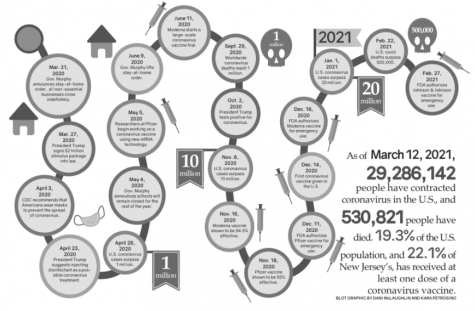School breaks cater toward Christianity
April 14, 2022
With spring break approaching for schools nationwide, many students are preparing for a week of relaxation away from school. Some are anticipating the observation of a religious holiday, such as Passover and Easter for the Jewish and Christain faiths while nondenominational students are simply happy for the opportunity to sleep in. However, spring break, much like its annual predecessor, winter break, is often determined based on the date of its concurring Christian holiday, leaving other religions, and the students that practice those faiths, without respective time off.
Though the Jewish holiday of Passover often coincides with Easter, more often than not nationwide school breaks are centered around Christian holidays, such as Christmas, which determines the beginning of winter break, and Easter, which determines the date of spring break. Jewish holidays, such as Hanukkah, and Muslim holidays, such as Eid al-Fitr and Eid al-Adha, are overlooked by school calendars, with the occasional exceptions of Rosh Hashanah or Yom Kippur. This leaves the students of these faiths either missing out on time with their families or missing days of school in order to be with their families. This is a struggle that those of Christian faiths do not have to deal with, as their holidays are always respected by the school calendars.
While schools cannot afford to have days off for nearly all of December or April for the sake of the education of students, it is important that these struggles be taken into account. In a school with a considerable Jewish population, such as CHS, teachers and administration must be considerate toward Jewish students at the time of these holidays, allowing for them to take time off to be home for these holidays and helping them to review missed material in the meantime. Alternatively, as CHS has done in the past, days that can be taken off from school, such as the days of Rosh Hashanah or Yom Kippur should be off.
Schools should work toward a schedule that is reflective of their communities. Though those of Jewish or Muslim faith are not the majority of students at CHS, according to nj.com, a 2017 study done by the Pew Research Center found that New Jersey has the largest Muslim population and second largest Jewish population in the country, the religions respectively ranking fourth and sixth most popular religions in the state.
Even so, the first day of the 2021-2022 school year for CHS students fell on Rosh Hashanah. Students were forced to choose between celebrating the Jewish New Year, praying among their community, attending meals and disengaging from work but being at a disadvantage by missing what many would call the most important day of the school year or skipping a tremendously influential day of religious observance.
As a member of the CHS Jewish community, junior Alex Dornemann of Eatontown explained the impact that such a decision had on them.
“There’s a big Jewish population at our school and I think having the first day of school on one of the highest holidays wasn’t a great choice,” said Dornemann. “Even if the second day [of Rosh Hashanah] isn’t as important as the first… A lot of other schools started the day after.”
These days do not only hold religious significance but allow minority families and communities to come together and celebrate with one another. Schools should work to foster such days of community, especially for minority students who may not feel as represented within their school environment.
As a Jewish student at CHS, senior Luke LaTorre of Middletown spoke to feelings of underrepresentation and the inconveniences of school falling on religious holidays.
“I do wish that there was more inclusion on what holidays were considered to be ‘off days,’” LaTorre said. “Because sometimes my family would have to plan around it and plan things on the weekend in order to accommodate for that.”









